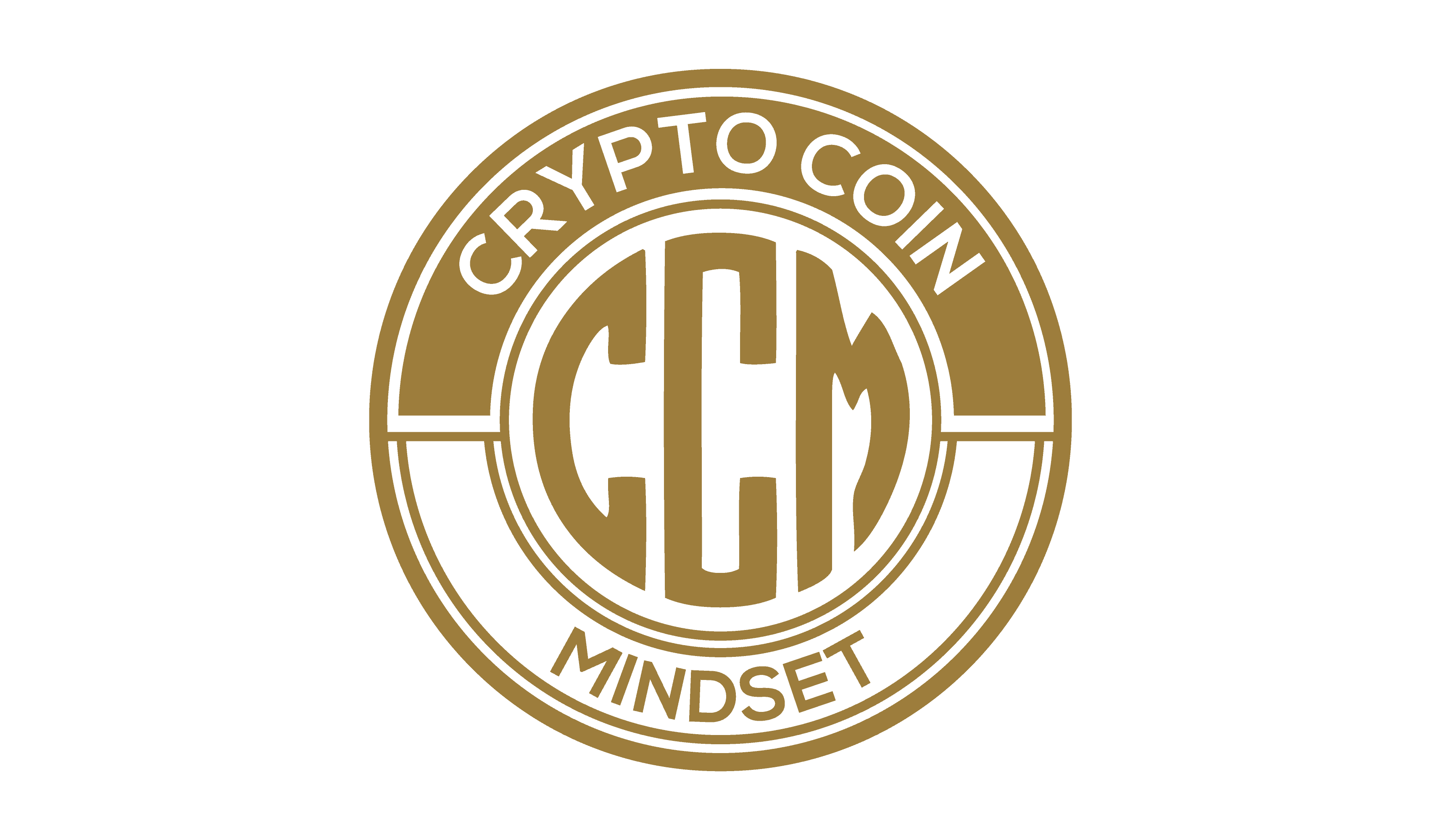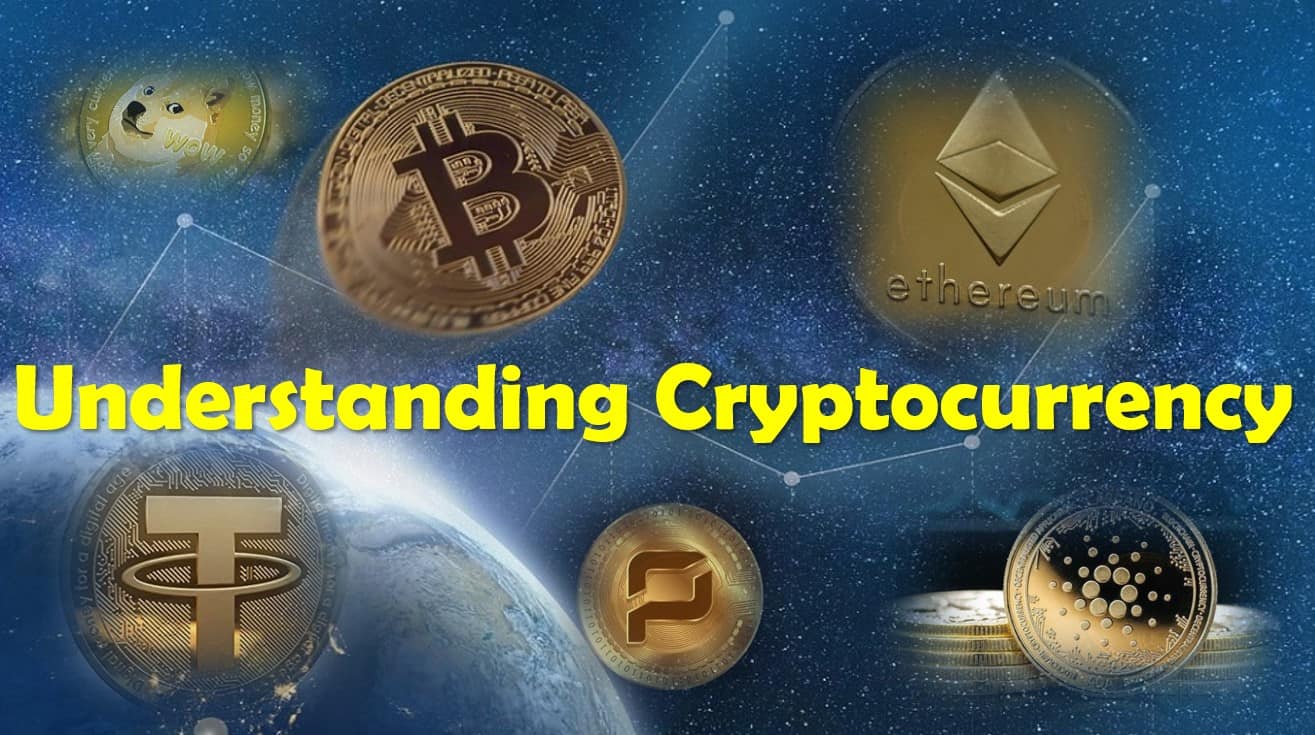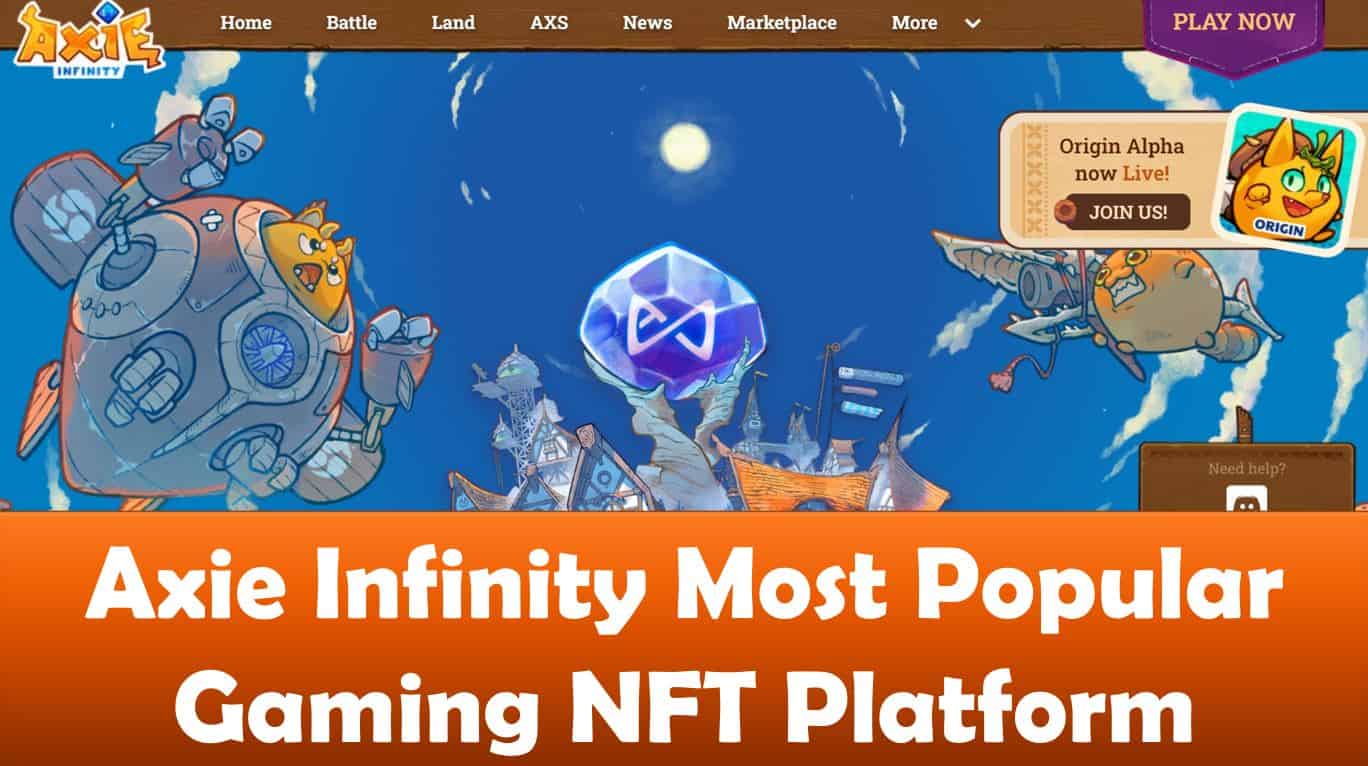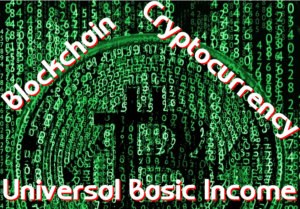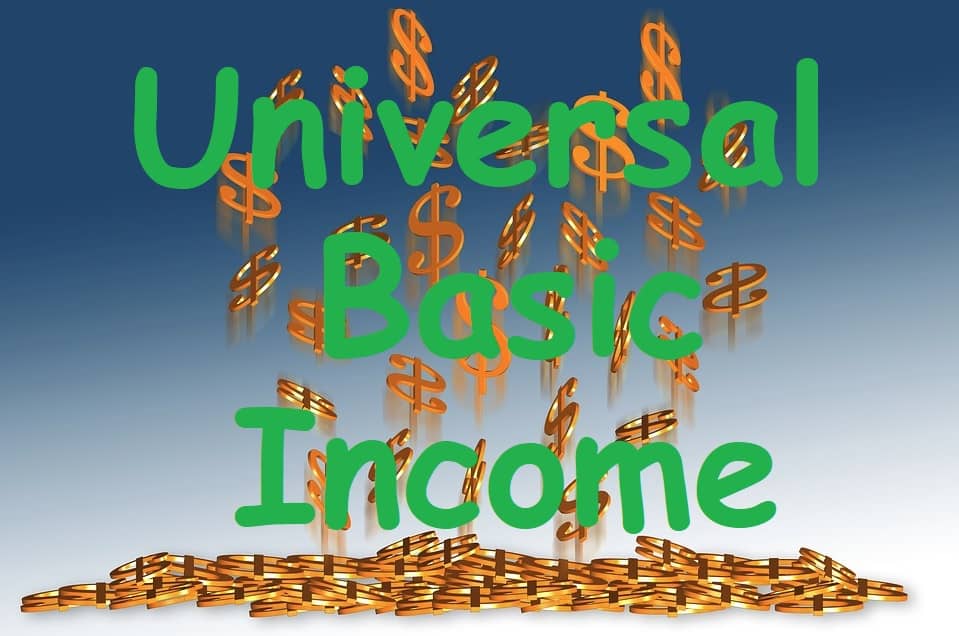
Universal Basic Income Overview
Last updated on October 22nd, 2022 at 07:31 pm
Are you a history buff?
Do you follow politics?
Right now you’re probably thinking… “I came here to read about this ‘basic income’ thing… why are you asking me if I’m interested in history and politics”
You may even be thinking “what do they even have in common…”
Well, besides the obvious… “If you don’t learn from history, you’re doomed to repeat it.”… or some iteration of that…
Oh boy, I’m just at the beginning of this article and already I’m going on a tangent…
OK… let me get back on track…
The correlation between history and politics definitely fits into the understanding of Universal Basic Income or UBI.
What Is Universal Basic Income (UBI)

In a nutshell, Universal Basic Income or UBI is a payment designed to provide a minimum level of income to every citizen of a country or a specific region.
Generally speaking this payment is distributed equally regardless of a person’s earnings and is given without proof of means or requirements to maintain the disbursement.
So in other words, the head of a company would receive the same payment as a homeless person.
Further, in order to receive this payment, you would not have to prove you meet some requirement, such as a certain income level to get it, nor would you have to meet any type of requirement, like attending school or working a certain job to keep it.
Factors Which Drive UBI
No matter what country attempts to implement UBI or by what means they intend on managing it, a Universal Basic Income proposal generally has some similar aspects. These aspects include:
Universal
The money is the right of every individual, regardless of their ethnicity, culture or job status.
No Commitments/Requirements
The UBI is paid to every individual, not expecting any kind of work or repayment.
Provide Timely Funds
Universal Basic Income focuses on providing regular funds to citizens; ensuring fluidity of money and a constant minimal source of income.
Paid In Cash/Native Currency
Any payments made to citizens are made in the native currency of the country or region.
The idea of providing a basic income has given rise to many avenues online. One of the largest and most active is Basic Income Earth Network (BIEN).
If you are looking for more information about the idea of UBI in general, want to learn more or if you’re interested in getting involved in the UBI movement, click here.

Right now, you might be thinking… “I’ve never heard of this before…”
Believe it or not, the idea of a government providing a basic income for its citizens is not a new concept.
History of Universal Basic Income

The origins of UBI can be traced back to the early 1500’s. In 1516, Thomas More, adviser to England’s King Henry VIII offered a form of basic income as a potential solution to end petty larceny.
Though the talk of a basic income for all may have started with Thomas More, it has echoed consistently through the centuries since.
Further, it has not been relegated to any specific area of the globe, but rather it has reared itself in many countries and cultures.
Many famous names throughout history have been advocates of this idea.
They include Thomas Paine, Bertrand Russell, James Meade, Milton Friedman, Richard Nixon, Pierre Trudeau and Dr. Martin Luther King Jr.
As a matter of fact, during the course of history a number of basic income plans have been tried by a few countries with varying levels of success. Some of these countries include England, Finland, Canada and the United States to name but a few.
Though many countries around the world have social assistance programs to help their most needy citizens, UBI is often seen as a means to either supplement existing social programs or frankly as a more efficient replacement option.
Some of these UBI trials include the implementation of Negative Income Tax which was in place in the United States back in the 1970’s. The Social Security program currently in place in the United States may be considered a somewhat ‘fringe cousin’ of standard UBI initiatives, it holds many of the traditional hallmarks.
In Canada, back in the 1970’s they created a guaranteed income program in one of the provinces which became known as Mincome. This idea has been carried into the 21st century, when Ontario started a similar program in 2016 .
One of the most notable income programs has been operating in the state of Alaska for decades. They have been paying every citizen of the state an income since the 1980’s. The program was funded from revenues from the Alaska pipeline.
Universal Basic Income In The 21st Century
In recent years, there has been resurgence in this idea of UBI.
It seems like the idea of a basic income spans wage and political classes alike.
We’ve seen millionaires, tech titans, silicon valley elite and politicians tout the potential benefits of this idea.
Now, the reasons that this wide array of characters support and want to see UBI implemented certainly vary as extensively as the proposals for creating the programs themselves.
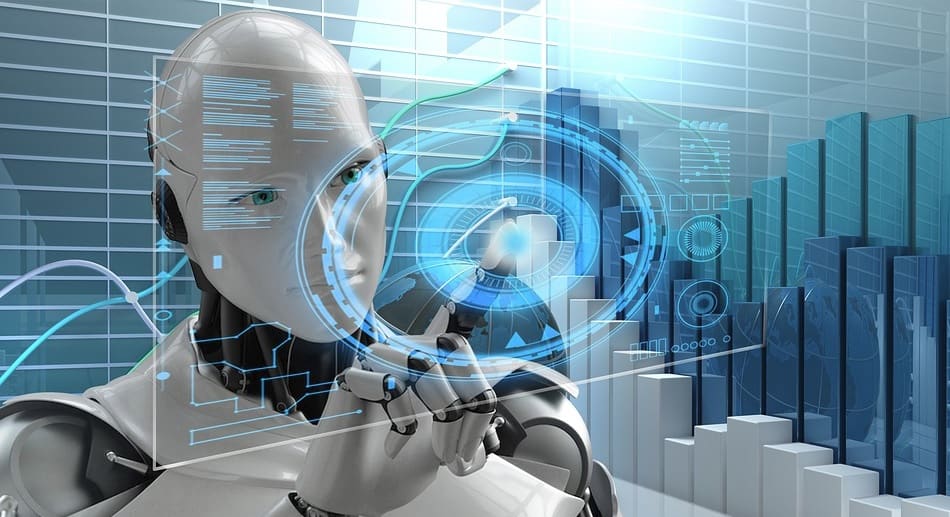
From the tech arena, we hear from such notable names as Mark Zuckerberg, Richard Branson and Elon Musk.
Those who are heavily involved in the tech area are generally of the opinion that the massive technological advancements currently happening will create such a substantial shift in our way of life, that many employees will soon be upended.
They assert that workers will essentially be replaced by technology and artificial intelligence or AI in many areas of the current workforce. Thus, massive unemployment will ensue.
Really???
Is this really happening to the workforce today?
We invite you to consider that even with our current level of technology, we already have things like self-driving cars and self-service kiosks in major restaurants and retailers.
Let’s not forget about the political arena… they will certainly not be sold short…

Many politicians, on both sides of the “political aisle” have spoken on this issue.
Now, as with everyone else everyone has an opinion on how their UBI proposal should be structured, funded, managed, maintained… you get the point…
Some of the most vocal politicians touting the altruistic nature of providing people with a basic income currently include newly elected Congresswoman Alexandria Ocasio-Cortez and 2020 US Presidential Candidate Andrew Yang.
Congresswoman Ocasio-Cortez has made the idea of basic income a part of the framework of her proposal which she had dubbed the Green New Deal.
Presidential hopeful Andrew Yang has put this idea front and center in his campaign for President of the United States in the 2020 election by highlighting UBI prominently on his campaign website.

How a UBI Program Gets Funded
If people are going to be given ‘free money’ it stands to reason that money has to come from somewhere.
Because finding funding for such an enormous undertaking is a challenge at best, especially for financially struggling countries across the globe; when we talk about the pros & cons of UBI, this will be listed in the ‘Con’ column.
But, what are the options available to the world currently?
Well, the options certainly seem to be limited…
The most obvious choice and the one which has been the means to the ends of most of current and previous UBI programs across the world is government funding.
While this may seem to be the most obvious because most people would concede that it is the job a government to ensure that its citizenry does not suffer… is government funding and management the best alternative?
Given the current level of success of ‘social programs’ we would submit… probably not!
But let’s not get too far ahead of ourselves…
How does it get funded?
Perhaps by taxing citizens?
We can only imagine how the people paying an additional tax would feel, never mind the ethical dilemma, the few paying for the many…
What other options are there?
Perhaps donations, philanthropic organizations and the like?
Sounds good… but would it generate enough money to not only fund the program, but maintain the program?
The likelihood is probably low…
The bottom line with funding and management of a UBI program is it may need to be some combination of all of these… and perhaps even more…
Cryptocurrency and Universal Basic Income
While we have discussed some of the potential hurdles of funding and maintaining a UBI program, we wanted to suggest that perhaps cryptocurrency and blockchain can help provide a solution.
We believe that as of the writing of this article, very few people would argue that the cryptocurrency space is still in its infancy.
So, the logical question would be, how could something that is still growing possibly provide a solution to this problem?
We would suggest that the youthfulness of this space is exactly what this idea needs. Funding and management programs can be developed from scratch with use of blockchain technology which can bridge the gaps that currently exist.
This is a topic which will require much more exploration. We will attempt to do just that in a future article.
You can read that article here.
The Pros & Cons of UBI
Like any program or initiative, Universal Basic Income is not without its staunch proponents and of course the often vocal opposition. The challenge is to sift through all the rhetoric and emotion and find the potential impact of such an enormous program would be.
Pros
• Reduces poverty and helps provide additional access to healthcare
• Provide income and assistance for the least fortunate (handicap/homeless)
• Provides an income for non-working/single parents and unpaid caregivers
• Encourage entrepreneurship
• Provide youth will ability to focus on their education leading to lower dropout rates and increases opportunities for higher education
• Provide workers the ability to take their time and search for jobs which better meet their salary or skill requirements
• Replace existing social welfare programs and reduce government spending
• Less invasive than most existing social welfare programs
• Diminish poverty and help increase a person’s feeling of self worth
• Diminish petty crimes
Cons
• Removes incentive to work eroding the understanding of the value of hard work
• A UBI program is too expensive
• Any program would be difficult to manage and ensure distribution of funds
• Determining the proper benefit levels
• Susceptibility to or creation of inflation
• Potentially stifle a country’s economic growth
• Payments can be used for morally bankrupt items like drugs
• Using the program as a political platform
Bringing It All Together
The phenomenon of Universal Basic Income seems like an impractical dream to many countries.
There have been and continue to be differing opinions about everything from its existence, how it should be developed and managed to if it would even have the intended effect.
The idea of Universal basic Income has drawn sharp reactions on both sides of the issue. Even though there have been many trials, the decision on the actual level of effectiveness is mixed at best.
.
There are always two sides to a coin. But whatever maybe the future, for now, one thing is certain… there will be a lot of debate in the months and years to come.
Disclaimer
The information provided here is for INFORMATIONAL & EDUCATIONAL PURPOSES ONLY!
View our complete disclaimer on our Disclaimer Page
